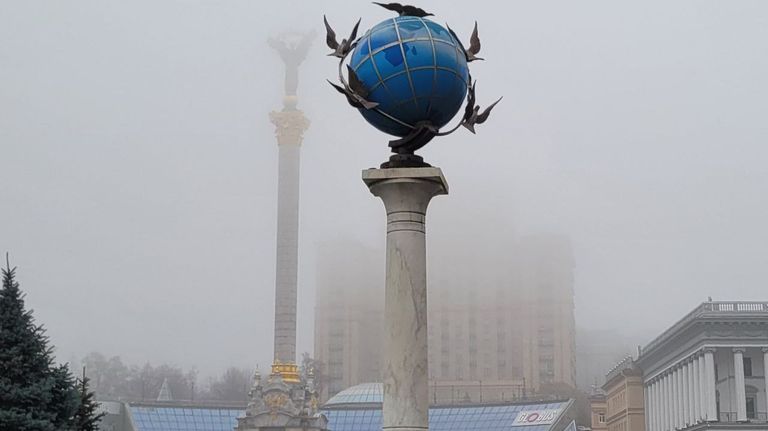This November, like 10 years ago, the politics smells very much in the air. Only now, the politics continue with other means (according to Carl von Clausewitz).
Generations of young people who do not remember Maidan have already grown, because when those who are now 18 years old, then were 8 and those events, if they remember, they remember them from television.

For some reason, now I return to those events. I returned to them when I gave lectures to personnel. I was thinking that it is easy for me to talk about that period because I still remember a lot of moments, it is easier for me to talk about these events compared to others where I was not present personally.
But I return to these events that the Maidan outlined as the geopolitical vector of Ukraine. No, it is not a vector for European integration, it is not a vector of affirmation of international policy, it is a vector of break - a break with the past - with the russian federation. From that time, russia's hybrid war against Ukraine takes a new form. Because the war never ended, it took only other forms.
Thinking about the last 10 years, we understand that everything could be much better, but everything could be much worse. So far, we have lost part of the territory but defended independence.
This year I went to the "Last Barricade", it is a restaurant that is right under the Maidan in the Globus. I have been there tens of times, but this time showing Kyiv to a friend from another city, I asked for a tour.
They talk about the "revolution on granite", the Orange Revolution, and Maidan "Revolution of Dignity". Similar 5-minute excursions were held by for many foreigners with whom I went to this restaurant earlier. But this time - the content did not please me. Here is Doniy, here is Bernard Henri Levi, here is a framework for the post of Mustafa Nayem, from which the Maidan seemed to begin. If you listen to this, it may seem that the Maidan was a liberal party of eternal reformers, who then eventually came the power for a while and at least somehow. But now they are "in power" somewhere in the mainstream.
Nationalism may seem popular and fashionable now. Unfortunately, the nationalists could not fully use the achievements of the "Revolution of Dignity" - and too many scoundrels remained in power, or they came to power covered with the Maidan brand.
I always thought that political struggle is no less important than military struggle.
With risk and danger, the desire for power is activated, including in its practical aspect - the acquisition of positions, opportunities, and resources. What if the victory on the front fails to fix it politically?
Without focusing on any specific purpose, or even more, the reproaches of political freaks from the past that split society, I return mentally to the times 10 years ago.
The Maidan has not yet outlined the purpose of Ukraine, and unfortunately did not lead to the rotation of the elites, but it determined what would no longer be - there will be no dominance of pro -russian forces in Ukraine, there will be no customs unions and "CIS". Therefore, the Maidan was an important stage in the history of Ukraine. And this Maidan was geopolitical.